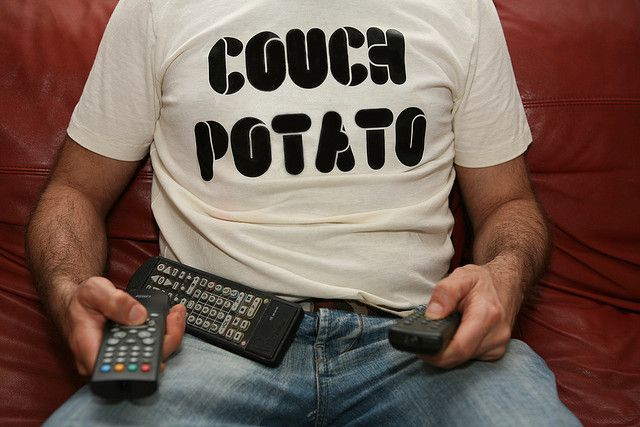How To Practice Self-Control: Key To Avoiding Couch Potato Mentality Is Finding Enjoyable Activities

Most psychologists characterize self-control as an expendable resource that we wear down over time, similar to energy. This would mean factors such as a long day at work and other stressful activities can limit our supply of self-control. A study published in the Cell Press publication Trends in Cognitive Sciences found that warding off laziness is as easy as finding productive activities that we enjoy.
"Breaks and vacations are not antithetical to productivity, but may actually boost it," Michael Inzlicht of the University of Toronto at Scarborough said in a statement. "Some smart companies already realize this."
Inzlicht and his colleagues defined self-control as “the mental processes that allow people to override thoughts and emotions, enabling them to vary behavior adaptively from moment to moment.” Although the research team recognized a diminishing performance over time, they say it has nothing to do with a loss of self-control, but rather a shift in priorities from our day at work to our night at home.
Researchers suggested altering the way we see our daily chores by turning “have-tos” into “want-tos” in order to reinforce our self-control. We can also control unavoidable motivation deterrents by steering clear of temptations while our energy levels are low. So when that little bit of self-control you're holding on to starts to slip, take a break or even a vacation to reestablish productivity.
"The main contribution of the paper is to say that although self-control is harder for people in these moments of fatigue; it's not that people cannot control themselves, it's that they don't feel like controlling themselves, at least on certain tasks," Inzlicht explained. "In short, when people are 'depleted' or fatigued, they experience a change in motivational priorities such that they attend to and work less for things they feel obliged to do and attend to and work more for things they want to do — things they like doing."
According to the American Psychological Association, 27 percent of Stress in American survey respondents admitted a lack of willpower was “the most significant barrier to change.” A lack of willpower was also appointed the number one reason for healthy lifestyle changes. Psychologists believe eating healthy, regular exercise, drug and alcohol avoidance, saving for retirement, stopping procrastination, and goal completion would be much easier to accomplish with self-control.
"If someone wants to eat healthier, they should think of the enjoyment that they can get from eating delicious, yet healthy, foods; in contrast, they should probably not frame their eating goal as something they feel obliged to do because their doctor or spouse is trying to convince them to do so,” Inzlicht added. “The key is finding a way to want and like the goal that you are chasing. Some people do this naturally — think of the person who loves to run and jogs as a way to relax or take a break."



























